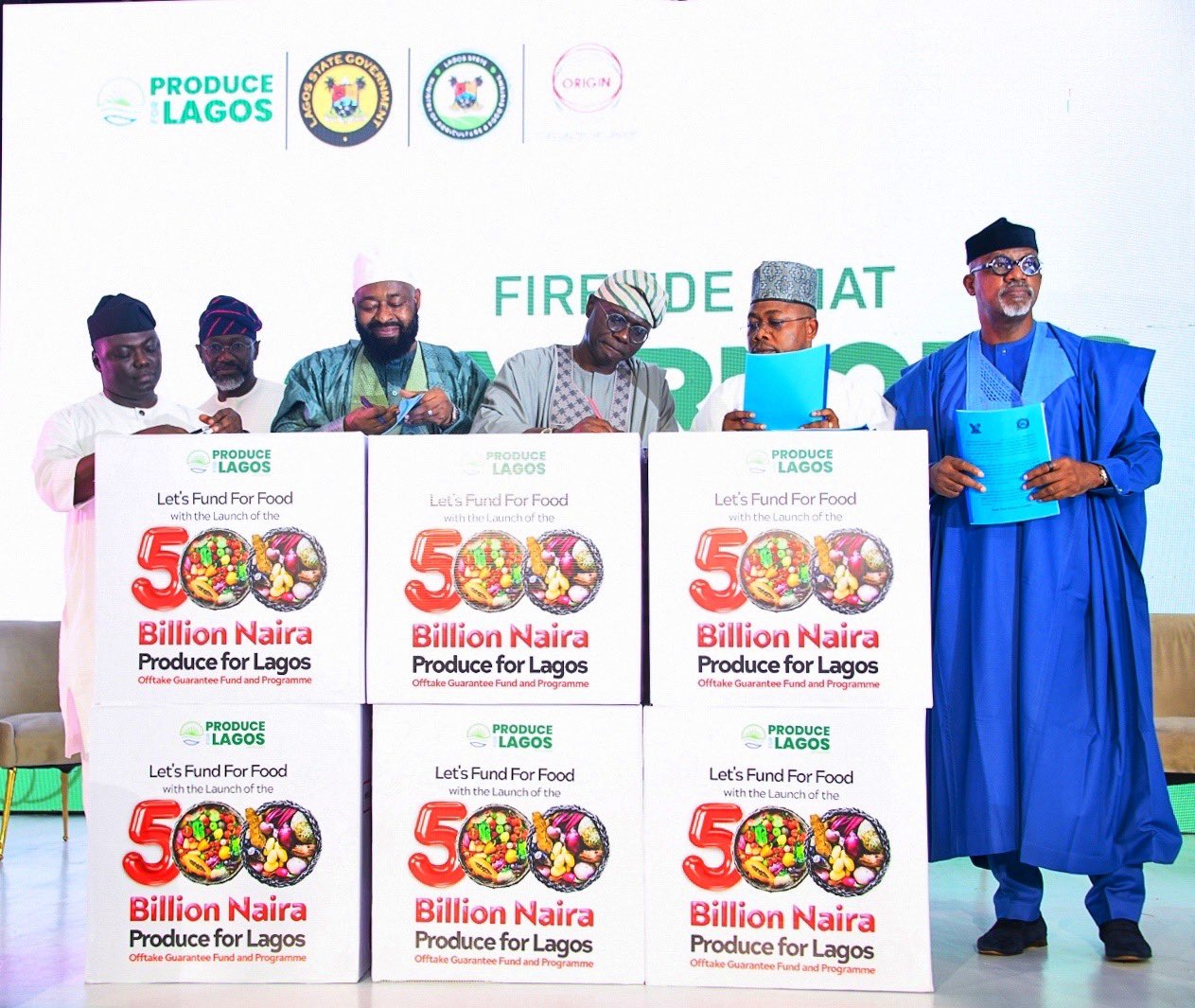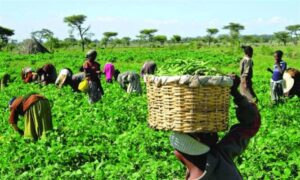- Says Lagos is Nigeria’s largest food mart with N16.14 trillion economy
- Governors, ministers, investors express commitment to food security
Lagos State Governor, Mr Babajide SanwoOlu, on Wednesday launched the Produce for Lagos Programme and the N500billion Offtake Guarantee Fund, an initiative of the State Government aimed at boosting food security, reducing imports, and enhancing agricultural productivity across Nigeria.
Governor Sanwo-Olu said the programme and the fund reflect his administration’s commitment to achieving food security, inclusive prosperity, and sustainable growth not just for Lagos State but for Nigeria.
Speaking during the launching of the programme at the Lagos House, Ikeja, Governor Sanwo-Olu said Lagos is Nigeria’s largest food market, consuming over 50 per cent of the food traded in the South-West with a food economy valued at N16.14 trillion.
The Governor expressed optimism that the programme would provide guaranteed off-take contracts, access to financing, and logistics support, connecting Lagosians directly with Lagos’s dynamic food economy.
He said the initiative, which is a partner- ship between government and the private sector, will boost agricultural production. Governor Sanwo-Olu, also announced and commissioned the deployment of a fleet of 150 cold and dry trucks, the largest of its kind, in partnership with the private sector.
He stressed further that the initiative “will boost agricultural production and reduce reliance on informal and uncoordinated supply channels, create jobs for our youth and increase economic returns for all ecosystem stakeholders.
“It will be implemented through the Lagos Food Systems Infrastructure Company (LAFS- INCO) and supported by key Special Purpose Vehicles like the Lagos Bulk Trading Company, Ekolog (Eko Logistics), and the Produce for Lagos Fund.
“This N500 Billion Offtake Guarantee Fund will provide working capital for bulk traders, finance for logistics operators, liquidity for aggregators, and credit support for food producers across Nigeria. It is a demonstration of our understanding that our food economy cannot thrive on policy alone – it requires financing.













